David Pratt: Author Spotlight, Looking After Joey
Today we have a Q&A with the wonderfully talented (and rather  gorgeous) author, David Pratt. I think this is one of the most hyper interviews I have had on here and one of the most infectiously delightful. I have recently discovered the joy of his writing after reading Looking After Joey and currently reading Bob The Book. “Joey”really is a book of parts. There is so much humour but it also touches on the subject of sex, relationships – of all kinds – and life in general in a rather grand, OTT way. I have an in depth review here for those who are interested. Later on this week, the 6th-8th inclusive, we will be running a giveaway for a chance to win a copy of Looking After Joey. If you have ever thought about reading a book by David Pratt this will be a great opportunity to enter for a chance to win a an e-copy of a very good book. David Pratt is also the author of My Movie and the Lambda Literary Award winning Bob The Book.
gorgeous) author, David Pratt. I think this is one of the most hyper interviews I have had on here and one of the most infectiously delightful. I have recently discovered the joy of his writing after reading Looking After Joey and currently reading Bob The Book. “Joey”really is a book of parts. There is so much humour but it also touches on the subject of sex, relationships – of all kinds – and life in general in a rather grand, OTT way. I have an in depth review here for those who are interested. Later on this week, the 6th-8th inclusive, we will be running a giveaway for a chance to win a copy of Looking After Joey. If you have ever thought about reading a book by David Pratt this will be a great opportunity to enter for a chance to win a an e-copy of a very good book. David Pratt is also the author of My Movie and the Lambda Literary Award winning Bob The Book.
What was your inspiration for Looking After Joey?
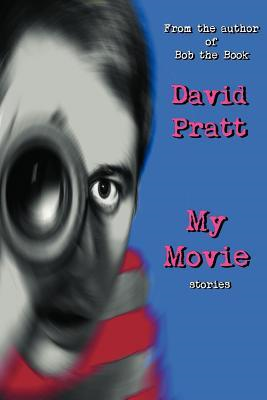 Years ago I wrote a short story, “Calvin Gets Sucked In,” about a gay man who ends up inside a porn video, pursuing his romantic obsession, Joey. Jameson Currier at Chelsea Station Editions chose “Calvin” for my short story collection, “My Movie,” in 2012. I thought there should be a sequel, about Joey coming into this world. Then I thought, That’s not a story; that’s a novel! And it would have to be a comedy. In original the story, Calvin’s experience in the video is more disturbing, and the ending is melancholy. I kept some incidents from the story, but now, as chapter one of the novel, the original story had to serve something larger. I remade it with a different tone and thrust. Adaptation fascinates me. How something must transform. How artful yet how practical you have to be.
Years ago I wrote a short story, “Calvin Gets Sucked In,” about a gay man who ends up inside a porn video, pursuing his romantic obsession, Joey. Jameson Currier at Chelsea Station Editions chose “Calvin” for my short story collection, “My Movie,” in 2012. I thought there should be a sequel, about Joey coming into this world. Then I thought, That’s not a story; that’s a novel! And it would have to be a comedy. In original the story, Calvin’s experience in the video is more disturbing, and the ending is melancholy. I kept some incidents from the story, but now, as chapter one of the novel, the original story had to serve something larger. I remade it with a different tone and thrust. Adaptation fascinates me. How something must transform. How artful yet how practical you have to be.
Joey is quite crazy and funny. It seems like you must have had a good time creating all those situations and characters.
I love my characters! I love reading them aloud. Calvin is like me, so of 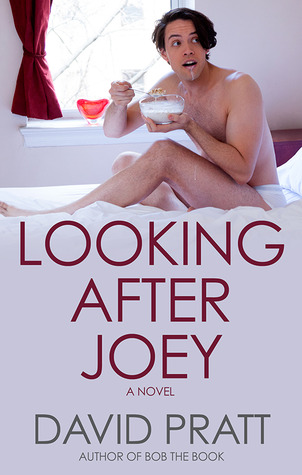 course I love him. Peachy is kind of like my partner, so I love him, too. Joey is so sweet and giving and trusting, and Doug so decent and sure of himself, even in the presence of all the hip urban gay men, who he’s nothing like. I also love the “glitter characters.” Sir Desmond may be obsessed with “lads,” but by God he gets what he wants. Stuart may be loud and lecherous, but he’s wonderfully guileless and uninhibited, and he’s a decent man, planting trees in Israel and publishing Jeffrey’s and Melinda’s book. I do disapprove of Bunce, taking his insecurity and self-loathing out on others, but I also sympathize with him. I understand and sympathize with Fred, even though I don’t approve of how he once treated Calvin. I even sympathize with Jürgen, the only real villain in the book.
course I love him. Peachy is kind of like my partner, so I love him, too. Joey is so sweet and giving and trusting, and Doug so decent and sure of himself, even in the presence of all the hip urban gay men, who he’s nothing like. I also love the “glitter characters.” Sir Desmond may be obsessed with “lads,” but by God he gets what he wants. Stuart may be loud and lecherous, but he’s wonderfully guileless and uninhibited, and he’s a decent man, planting trees in Israel and publishing Jeffrey’s and Melinda’s book. I do disapprove of Bunce, taking his insecurity and self-loathing out on others, but I also sympathize with him. I understand and sympathize with Fred, even though I don’t approve of how he once treated Calvin. I even sympathize with Jürgen, the only real villain in the book.
Are any of those characters based on people you know?
Other than Calvin being like me, no. I do know men, gay and straight, who are like Doug: not hip, not ripped or gorgeous, just decent and kind, and sexy because of that. All my main characters have those two things in one form or another.
Peachy—my God, the loyalty, the willingness to do anything for someone he cares about. I do think it’s important to portray gay men with character. My generation of gay men was not allowed to have character. Gayness itself was moral flaw number one.Plus, we were liars. The lies and the hiding were later seen as understandable, but when we were very young, all we knew was, we were hiding something and telling lies, and lies were bad. So, at least to ourselves, we could never be one of those “fine young men,” no matter how many A’s we got or how well we sang in the spring musical.
“Joey” is a comedy, but some if it is very touching, even heartbreaking.
One scene, the good-bye to at the train station, so broke my heart that, when I did rewrites, I couldn’t read it word-for-word. If there are typos, that’s where they are! The second part of the book does deal with loss. “Looking after” has a double meaning: caring for someone, but also watching them leave for a life of their own. One reader told me he laughed through the first three parts, then cried at parts four and five. Part six, I assume, he laughed and cried. The line from Steel Magnolias “Laughter-through-tears is my favorite emotion”—applies to a lot of the second half of “Joey.”
You make fun of a lot of contemporary culture – gay, straight and everything in between.
I tell people that my one marketable skill is mockery. I go to town on anything that is pretentious or fatuous. I had a lot of fun making up Wocka-Wocka, the fictitious jukebox musical they go see…
…with it’s big hit, “Let’s All Have More Muesli”…
…which you can hear on the soundtrack of the book video:
I asked my friend Chris Olsen of Conceptual Rhythm if he would create an instrumental soundtrack. He read the manuscript and wanted to do “Let’s All Have More Muesli.” The singers belong to the Long Island folk band Pandafan. They are just fabulous.
You have a nice-looking cover boy, too! Tell me about him.
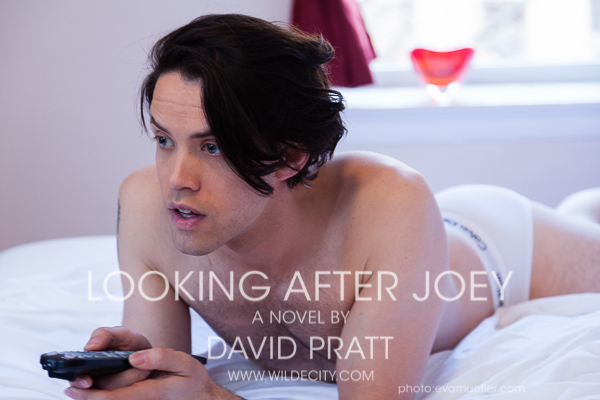 Nicholas Gorham. He is first and foremost an actor, so he was able to give us a huge amount of stuff and turn on a dime from curious to flirtatious to melancholy; whatever we wanted. The photographer is Eva Mueller, who does gorgeous, very intense work with bodies, sexuality and gender (take a trip to www.evamueller-art.com). She knows more gay men than I do! She found Nicholas. He behaved throughout the shoot just the way Joey would: cooperative, sweet, very guileless, a complete gentleman, but a sexy, self-aware one. The shot on the cover is cute and funny, but you see Joey’s character, too. It’s a photo of a good man. In his underpants. With a bowl of muesli.
Nicholas Gorham. He is first and foremost an actor, so he was able to give us a huge amount of stuff and turn on a dime from curious to flirtatious to melancholy; whatever we wanted. The photographer is Eva Mueller, who does gorgeous, very intense work with bodies, sexuality and gender (take a trip to www.evamueller-art.com). She knows more gay men than I do! She found Nicholas. He behaved throughout the shoot just the way Joey would: cooperative, sweet, very guileless, a complete gentleman, but a sexy, self-aware one. The shot on the cover is cute and funny, but you see Joey’s character, too. It’s a photo of a good man. In his underpants. With a bowl of muesli.
So I have to ask: Why muesli?
It’s about the most disgusting and overserious word I know. To make an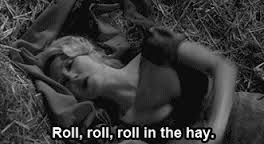 fatuous bubble-gum song about it seemed funny. A lot of comedy is about returning to third grade. Farting in church. And being stupidly obvious. Think of Young Frankenstein: “Roll, roll, roll in the hay!” That’s all there is to that joke. It’s completely stupid. And that’s its triumph. That’s the fart-in-church of it. The muesli song, likewise, is as stupid as I could make it. I also find it funny that this disgusting word is for something so mundane. And Swiss. One thinks of them as so meticulous.
fatuous bubble-gum song about it seemed funny. A lot of comedy is about returning to third grade. Farting in church. And being stupidly obvious. Think of Young Frankenstein: “Roll, roll, roll in the hay!” That’s all there is to that joke. It’s completely stupid. And that’s its triumph. That’s the fart-in-church of it. The muesli song, likewise, is as stupid as I could make it. I also find it funny that this disgusting word is for something so mundane. And Swiss. One thinks of them as so meticulous.
So there’s comedy and there’s drama in “Joey.” Is there romance?
Absolutely! “Joey” is not a traditional romance, but the main characters are all looking for love, and they all find it—or we can be pretty sure by the end that they will. The book also has a romance going with the city of New York, with Chelsea as an old-fashioned “gayborhood” where gay friends meet and mingle over wine or mimosas or go bar-hopping or go to gay bookstores. Those gay ghettos are beginning to disappear, but I grew up with them, and I love them. The Joey affair is Calvin’s and Peachy’s last caper in the gayborhood before they finally grow up. In the last chapter, the video store is replaced by a big box store, Joey and Doug are off on their own, and Calvin…well, you’ll have to read the book to see how it ends for Calvin. It’s sweet and romantic and funny, too.
Big picture question: Why do you write? And which writers are your inspirations?
As a child I loved the Winnie-the-Pooh stories. They’re a direct influence on “Joey.” Chelsea is the Hundred Acre Wood. Calvin is Pooh, Joey is Piglet, and Peachy is Rabbit—or Owl on speed! The House at Pooh Corner has one of the great endings ever: “Promise you won’t forget me, ever. Not even when I’m a hundred.” That could be the ending of “Joey,” too.
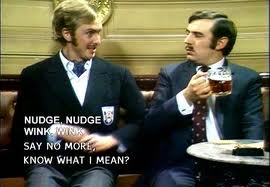 As for humor, I grew up on Tom and Jerry, the Three Stooges, and Abbot and Costello. My view of humor was upended when I was ten and “Laugh-In” came on: the quick cuts and the sense of a free-for-all, one big party, and the ridiculous stuff like Alan Sues and his “dingaling.” Then Monty Python came to the U.S. They had gags interrupting gags, seemingly pointless cartoons, and meta stuff like letters from viewers complaining the skits were silly. Those two shows gave us permission to do anything: beat mice with a hammer; throw cats across the room; do silly walks. Michael Palin went on “Saturday Night
As for humor, I grew up on Tom and Jerry, the Three Stooges, and Abbot and Costello. My view of humor was upended when I was ten and “Laugh-In” came on: the quick cuts and the sense of a free-for-all, one big party, and the ridiculous stuff like Alan Sues and his “dingaling.” Then Monty Python came to the U.S. They had gags interrupting gags, seemingly pointless cartoons, and meta stuff like letters from viewers complaining the skits were silly. Those two shows gave us permission to do anything: beat mice with a hammer; throw cats across the room; do silly walks. Michael Palin went on “Saturday Night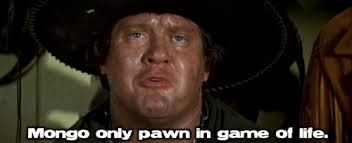 Live” and put a live cat and a fish in his pants—just because. Also, as a teen, I read all of Kurt Vonnegut, Jr. I don’t have any interest in him today, but the irreverence and the meta stuff influenced me then. Humor later on, in the eighties, was more conservative and suburban. You can’t compare Back to the Future to Blazing Saddles or The Groove Tube. I grew up with some really creative, irreverent stuff.
Live” and put a live cat and a fish in his pants—just because. Also, as a teen, I read all of Kurt Vonnegut, Jr. I don’t have any interest in him today, but the irreverence and the meta stuff influenced me then. Humor later on, in the eighties, was more conservative and suburban. You can’t compare Back to the Future to Blazing Saddles or The Groove Tube. I grew up with some really creative, irreverent stuff.
Why do I write? The playwright Tina Howe says she writes to make things turn out better than they do in life. I agree! I also like to open up reality, to charge even a window, a car, a bed or a book with meaning. In a novel I am working on now, a character continually looks up at a dark window. He wishes the window were lit and he could be within it. But once he is, it turns out not to be what he thought. He is still outside.
Desire put him inside; once physically inside, reality puts him out again. I am fascinated by how people and things are located in relation to one another, by distances and by desire. Anne Carson deals with this stuff a lot. In “Joey,” Calvin enters a video, but it doesn’t resolve his desire. When Joey follows Calvin out, they become almost too close and must deal with that. That part of the book is all close-ups. In part three, Calvin goes to Spain. He and the reader need some distance. In Spain, he goes back to a lot of looking. When he comes home, there are fewer close-ups and more long shots. Calvin goes from looking after Joey in the sense of caring for him to looking after him in the sense of watching him go away. He has gone from desire to loss, from hanging on to letting go. He is now ready for a relationship. That kind of stuff fascinates me.
I also just like creating. “Joey” deliberately has too much plot and too 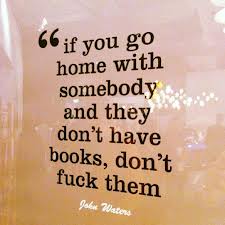 many characters. It’s like, “Look, Ma, I’m juggling five balls. Now watch me do six!” My inspiration for that is John Waters. By his own admission, he overloads his movies with plot. In “Joey,” the characters and incidents are like sperm. There’s way too much sperm in the world, more than we could ever, ever need. But it’s here, and as gay men we celebrate it, not for its practical function but for the abstracted creativity and life force as expressed in the amount of it and the force of the ejaculation. Think of Looking After Joey as one big ejaculation. Like at the end of Ulysses. Now, if that doesn’t make you buy both those books, I don’t know what will! Seriously, I’d love to see on Amazon, “Customers who bought this book also bought… Ulysses by James Joyce”!
many characters. It’s like, “Look, Ma, I’m juggling five balls. Now watch me do six!” My inspiration for that is John Waters. By his own admission, he overloads his movies with plot. In “Joey,” the characters and incidents are like sperm. There’s way too much sperm in the world, more than we could ever, ever need. But it’s here, and as gay men we celebrate it, not for its practical function but for the abstracted creativity and life force as expressed in the amount of it and the force of the ejaculation. Think of Looking After Joey as one big ejaculation. Like at the end of Ulysses. Now, if that doesn’t make you buy both those books, I don’t know what will! Seriously, I’d love to see on Amazon, “Customers who bought this book also bought… Ulysses by James Joyce”!

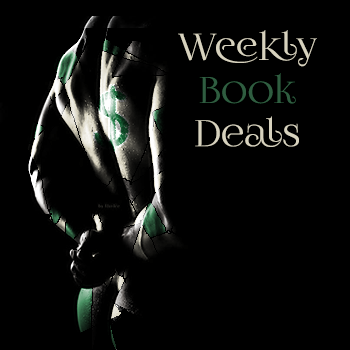
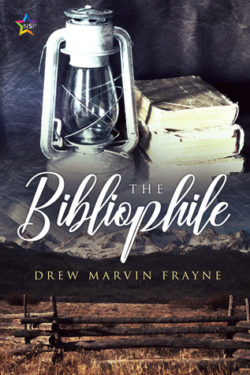

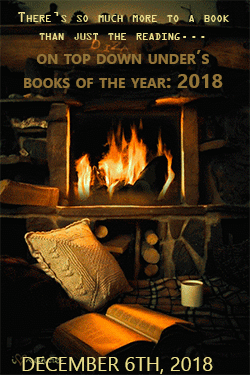
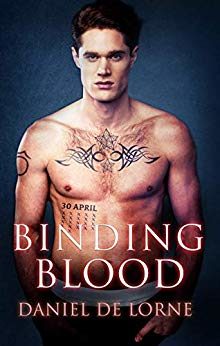
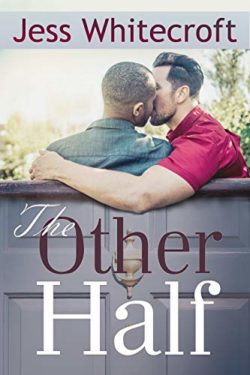
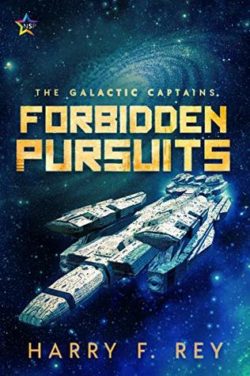
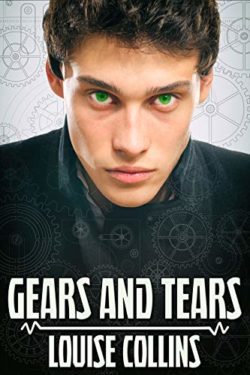
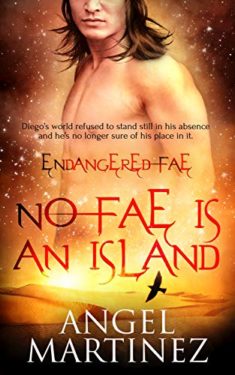
Great interview, Kazza and David! Sounds like we should all have a movie night. 😉
He is very charming, Devon.
It does sound like that. But which movie?
🙂
What a fun interview! I love the pics and the quotes and I can tell that Looking After Joey is a definite ‘Cindi’ book. “Think of Looking After Joey as one big ejaculation…”
😉
Thanks for stopping by On Top Down Under, David.
It’s is a fun interview, isn’t it?
“Joey” really does have “Cindi” written all over it.
Thanks for a great interview guys! And thanks David for being a great interviewee!
I love muesli more now!!!!!
Hey Everyone – Thanks so much to you all for reading and commenting. Huge thanks to Kazza and Son for the great-looking spread, here and with the giveaway — and to Kazza for the review that started it all! It was a huge lift for me and still is. It’s a wonderful feeling to connect with friends who appreciate great literature and boys in their underpants eating cereal. Specifically, who realize those things aren’t mutually exclusive. Everyone, please feel free to friend me on Facebook and/or Goodreads for more updates. Thanks again! David
I am all for great literature, and guys in their underwear eating muesli, and it definitely isn’t mutually exclusive. This book is a delight.
🙂
It was very much the case that gay men in my era did not have, were not allowed to have, character. If they made it into the pages of a book that was considered more mainstream in its writing, they then simply had to die, or appear abnormal. Now it is better, of course if could always improve, but we move forward two steps and sometimes back one. I appreciate the sort of writing that authors like David Pratt create and publish. Books where gay men can have their own problems, that any person may have, yet they can flourish… Read more »